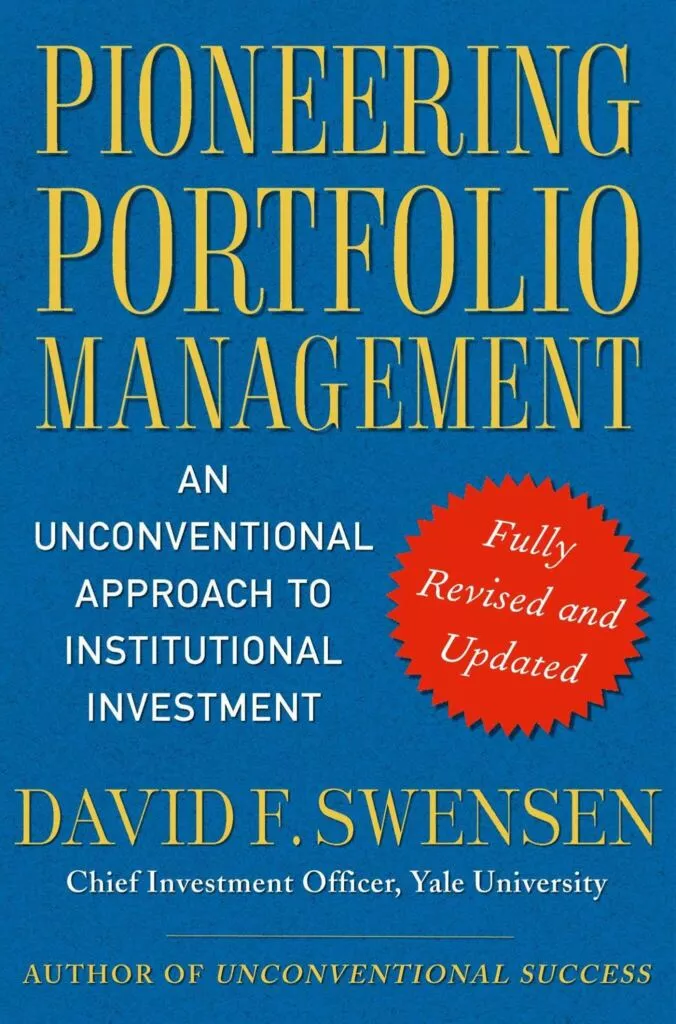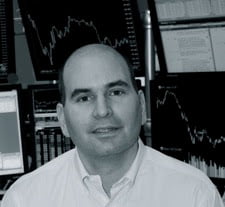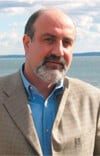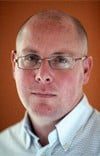Biographies
Biographies of famous people in the field of finance.
First woman to buy a seat on the NYSE
Aged 80 years died Muriel "Mickie" Siebert - the first woman, member of the NYSE. 1968. Mickey has always been the most recognizable figure on WS Muriel "Mickie" Siebert became the first woman, taking place on the NYSE. She was the founder and owner of a brokerage firm, bearing her name - Muriel Siebert & Co. Inc. Jane Macon, director Siebert Financial, talking about her death, called her "a fairytale woman, pioneer and pioneer in the men's business world ", which raised the bar for everyone, entering the financial world after her. Nevertheless, she's opening the door, always kept it for people, following her ". She bought a spot on the NYSE in December 1967 after months of struggling with business resistance with a purely masculine dominance. Meriel Seabert (Muriel Siebert) - first female broker on the New York Stock Exchange - died 24 August aged 80 years. Writes about this The New York Times with reference to the member of the Board of Directors of Siebert Financial Corporation Jane Macon (Jane H. Macon).
Synopsis of the book Innovative Portfolio Management. Davida Swenson
Let's continue to get acquainted with the legends of Yale University, and concurrently with the legends of the economic/investment world. Synopsis of the book Innovative Portfolio Management. David Swenson. After Bob Schiller, let's move on to his guest during the recording of the series of lectures on finance – David Swensen.
Exclusive interview with prop trader Mike Bellafore (SMB Capital)
The Great Samurai Warrior has the perfect combination of aggression and discipline.. Too much aggression – and the warrior becomes at risk of defeat. Too much discipline, and the warrior will never be able to attack. Prop Trader – a beautiful samurai warrior behind his trading place.
By pressing the exit button in a career in law, Mike Sent a Sharp Analytical Mind to Wall Street. Having survived the fashion of day trading on the technology boom in the late 90s, Mike teamed up with a close friend. , to launch your own store: . Although the core of SMB's business is proprietary trade, the company also has a mission to develop training programs for traders. After researching several of their new learning products., I will be able to confirm, that SMB is good on the way to achieving its goal.
Recently, I was lucky enough to sit next to Mike and learn about his career., about that, how he raised SMB Capital, and his wisdom for traders.
“Trade – it is the ability to develop and discipline”
Damien Hoffman: Mike, as I, You are a lawyer by training. What made you leave the practice of law and move on to trading??
Mike: I was in my third year of law school., when I realized that jurisprudence – it's not the same, what I need. My best friend, Steve Spencer, invited me to New York for a celebratory dinner. Steve and his roommate from Wharton (School of Business), Jared Keben, convinced me, that I should consider trading with their company. That's why I did it.. In a nutshell, it was the best opportunity, which I had after graduating from law school.
Damien Hoffman: What was your reaction?, when you first saw the trading floor and trading guys?
Mike: My first reaction was to laugh just at the thought of it.. When we first started trading, there were no schedules. There was also no CNBC or news feed.. We had one old computer and no air conditioning. [both laugh].
Damien Hoffman: What a year it was??
Mike: 1998. When it got too hot, our decision was to send a gang of messengers for ice cubes and ice cream sandwiches. [both laugh]. We were in an unimpressive building on 50th Board Street.. The ceilings were 7-8 feet. We were all cramped., and perhaps to my left and right was 6 feet. I had to use the phone with another person. This, undoubtedly, not a picture of really rich Wall Street firms, that you could see in the movies. But the environment was competitive., filled with guys, who really like to trade, guys, who make a lot of money, good guys, and cheerful guys. Even with such an unimpressive infrastructure., it was a great opportunity.
Damien Hoffman: That sounds fun..
Mike: And so it was.!
Damien Hoffman: How did you succeed in that environment and get off the ship?, to start your own business?
Mike: That's a good question.. After a year at this firm, I had enough money., to trade on your account. And for more than ten years, this is what, what I do. Then came the moment., when trading became insufficient for me. I wanted to do something else. – something big, due to the lack of a better word. At the time, I found out., that there are many start-up companies, which attracted traders. I started thinking about, how I have learned over the past ten years and gained skills, which could serve well for that, to start this type of business.
The post is not over
Thomas R.. Demark / Thomas R. DeMark
Trader and Consultant Tom DeMark (Tom DeMark) recently invented dozens of original technical indicators and relies solely on technical timing principles in his research and trading. He even signed up for the CFA program once. (certified financial analyst - certified financial analyst), but decided not to go through it to the end. “Markets in the long term are characterized by basic. But my indicators measure psychology - that's what, what does technical analysis do ", - Demark explains. DeMarke's first immersion in the world of finance occurred after graduating from graduate school in two specialties - business and legal, after which, in the early 70s, he was hired as a fundamental analyst at the National Investment Service, located in Milwaukee (PCS. Wisconsin). The firm managed pension assets and assets with a joint profit of about 300 million. Doll., investing mainly in securities and fixed income shares. The strength of the National Investment Service was in timing. Demark, however, this is how he remembers his first job: “I was a professional errand boy. I was the lowest in the company, but rose quickly, because he knew how to choose the time for operations ".
Stephen Cohen / Steven Cohen
Stephen Cohen grew up in Great Neck, New York State, in the family of a clothing manufacturer and a piano teacher. The family was big and noisy. Cohen thinks, that it was here that he learned to concentrate on the main. And in cards, and at school Cohen did well. “In the mornings, he often had bundles of hundred-dollar bills on his desk.”, – recalls Donald, 47-summer accountant from Florida. “I've learned to take risks through poker”, – says Cohen. At the University of Pennsylvania he studied economics, played poker and became interested in the stock market. He opened an account with a brokerage firm Gruntal and put there $7000, intended for tuition fees. At the brokerage office closest to the hostel, he followed the market and, thanks to several transactions, earned enough, to pay all bills. IN 1978 G. Cohen took a job at Gruntal, where on the first day I earned for the company 8 000 $. Ultimately Cohen did approximately 100 000 $ a day for the company, to 1984 he managed a portfolio in $75 million and a group of six traders. There were transactions on his account, who helped Gruntal cover losses, incurred due to transactions of other traders. IN 1992 G., left Gruntal, Cohen opened a hedge fund, investing there $20 million own funds (today the firm manages more than 12 billion $). IN …
Richard Dennis / Richard Dennis
Richard Dennis, also known by the nickname "Prince of the Pit", born in Chicago, in January 1949. Early 1970s, he borrowed several thousand dollars and ten years later turned them into 200 million dollars. When a futures fund, run by Denis, suffered significant losses during the fall of the stock exchange 1987 of the year, he retired from trade for several years. Dennis started as a messenger on the trading floor of the Chicago CME Exchange in 17 years. Several years later, he began trading mini-contracts for his own account on the Mid-America Commodities Exchange.. After a series of successful deals, Denis bought a seat on the much more expensive Chicago Board of Trade. To get around the age limit, Richard worked as his own messenger and gave requests for execution to his father, who stood on his site in the "pit".
Paul Tudor Jones / Paul Tudor Jones
Paul Tudor Jones II was born 28 September 1954 years in Memphis, Tennessee, USA. Paul Jones graduated from the University of Memphis, and later at the University of Virginia, he received a degree in economics. IN 1976 year quite successfully participated in the boxing championship in welterweight. He started his business career at 1976 year from the position of a clerk and soon grew to a broker at E.F. Hutton». With 1980 for two and a half years Paul was an independent trader. Then he went to Harvard Business School, but soon realized, something, what is taught in this school is not the same knowledge, which he wants to get. Therefore, he abandoned the idea of further education and asked for support and advice from his relative, William Danawant., specialized in cotton trade. William Danavant sent him to New Orleans, what would Jones talk to and big broker Eli Tallis, who offered him a pretty good job. Jones begins trading cotton futures on the New York Cotton Exchange.
Nassim Nicholas Taleb / Nassim Nicholas Taleb
Born Nassim Nicholas Taleb in 1960 year, in the Lebanese city of Amioun. His family professed Orthodoxy. During the civil war, which began in 1975 year, they were deported. Father of Nassim Nicholas, Dr. Taleb was an oncologist, did anthropological research. Among his ancestors are politicians, representing the interests of the Orthodox community of Lebanon. So his maternal grandfather and great-grandfather were deputy prime ministers of Lebanon, paternal grandfather served as Chief Justice, and also in 1861 his great-great-great-great-grandfather served as governor of the semi-autonomous Ottoman province on Mount Lebanon. Taleb has held senior positions in brokerage firms in London and New York, and also worked on the stock exchange, before starting his own hedge fund company Empirica LLC (futures and options sales). He received his Master of Business Administration degree (MBA) At Wharton School and defended his Ph.D. thesis at the University of Paris. Author of "Dynamic Hedging" and "Fooled by Randomness".
Nicholas Leeson / Nicholas Leeson
Few things happened in the 1990s, who excited the world just as much, like the collapse of British bank Barings at the end of February 1995 of the year. What shocked the most was, that the bank, whose history included 233 of the year and who was entrusted with their money by representatives of the aristocracy and the royal family, collapsed as a result of overt and covert speculation by a single person - 28-year-old trader Nicholas Leeson (Nicholas Leeson). His self-confidence and passion for risk taking, as well as the greed and stupidity of his bosses, That, admiring the "sky-high" profits, turned a blind eye at the subordinate's scams, deprived the bank 850 million. pounds, killing the investment empire overnight, whose strength seemed unshakable. The story of the Barings collapse is extremely instructive, because it is not only the “quintessence of morality” of modern financial markets, but also a clear picture of that, What are the dire consequences of ineffective financial risk management?. IN 1996 year, being in prison on charges of forgery and deception, Leeson publishes his autobiography "Rogue Trader" ("Rogue trader"), where he spoke in detail and frankly about his deeds.



